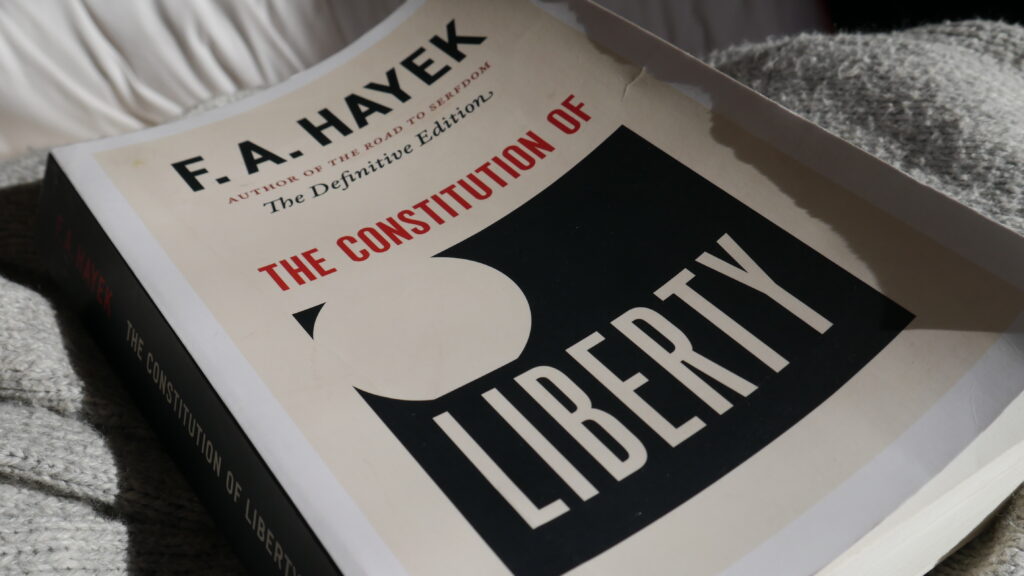What is Liberalism?
Liberal is derived from latin’s liber, which means free. Liberty, which means freedom, comes from the same root. The term liberal can be summed up as less strict or tolerant, meaning more free. This is an important term, because liberalism is, or at least started out as, a live and let live approach. Classical liberalism really is all about freedom of the individual, and through it, as a consequence, the community as a whole with voluntary participation in any activities. I believe we cannot have a free and prosperous society without free and prosperous individuals.
Classical liberalism also has a fundamental take on human rights, that these are ‘self-evident’ and come from our ability to reason. This is termed natural law (Acquinas) and forms the founding basis of the US constitution and UN Human rights charter. These too can be found in the Magna Carta (1215AD) and have been championed by John Locke (1632 – 1704) for “Life, Liberty and Property”, Frederic Bastiat (1801-1850) in his work “the Law” and John Stuart Mill (1806-1873) to name a few.
We will not delve into the full history of this, as that is not the reason for this work, but let it suffice that liberalism is founded on longstanding and fundamental principles that have withstood the test of time and have been proven time and time again as the requisite basis for human flourishing and happiness and that certain freedoms (rights) are innate and inseparable from our humanity.
We seem to have forgotten this, or at the very least, are very poor at communicating and sharing the enduring values and their importance. While not always popular in the modern era, since Socialist (ie collectivist/statist) ideology keeps raising its ugly head, but they are worth fighting for.
Let it be said here, now and without confusion to those who may be subject to feelings of political populism: Doing what does good is not the same as doing what feels good. Quite the contrary, to achieve good one must often go through hardship, compromise and difficulty. To learn, one must study and apply tiresome effort, to grow muscles, one must painfully labour in the gym and to find happiness, one must subjugate to reality itself, rather than fantasy. Resilience is only built through enduring resistance.
There is a potential predisposition in all of us to consider ourselves better or more moral than everyone else and wanting to dominate or lord it over others, telling them how they should live. This is part of our humanity, and our apparent autonomy and self-control over our own lives.
However, if not a faith in a Divine Creator who has created us all to be equals and given us free will, then at the very least the acceptance of natural law and requisite tolerance of individual choice and difference must constrain the liberal in his infringement into the lives of others. This is the fundamental basis of the political ‘right’. Isn’t it?
To make it even simpler, it is often referred to as the “non-aggression principle” (Rothbard), which I believe ties directly to what is commonly termed the Golden Rule in scripture and as found in almost every major faith tradition. Perhaps, because of this close relationship, freedom of religion is often expressed to be a fundamental right.
To summarise, classical liberal values are fundamentally libertarian: in other words, supportive of individual freedom. However, they are not anarchical (ie without rules), because social justice demands the strong protect the weak and vulnerable, so a position of ‘survival of the strongest’ is not acceptable. Maybe for another discussion, but I believe that there can be no freedom without rules and that it is exactly those rules that provide liberty.
The classical liberal position therefore demands a common rule of law and so a boundary jurisdiction within which the rule of law can be upheld and finds support.
It also demands representation and democracy (voluntary support) to maximise the power of the voice and freedom of individuals.
So, then it therefore also demands protection of indefeasible human freedoms and so property, again this requires a judiciary or limit.
Therefore the discussion is about the range of government functions, from minarchist (law enforcement, protection of national sovereignty, justice) to small (adding: health, education, environment, infrastructure etc..), but, following natural law and the non-aggression principle, a liberal anchoring position is always ‘minimal’ – in direct contrast to collectivist, statist positions of ‘government first’.
Or to state it in different terms, it is the liberal view that individuals are fundamentally free and responsible for themselves and that the role of government is in protecting and supporting individuals, which is in direct contrast to a government responsible for ruling the people and that the only rights people have come by way of the government.
Liberty is quickly and easily lost, yet readily taken for granted until it is gone. We must therefore be vigilant and articulate in defending it.

